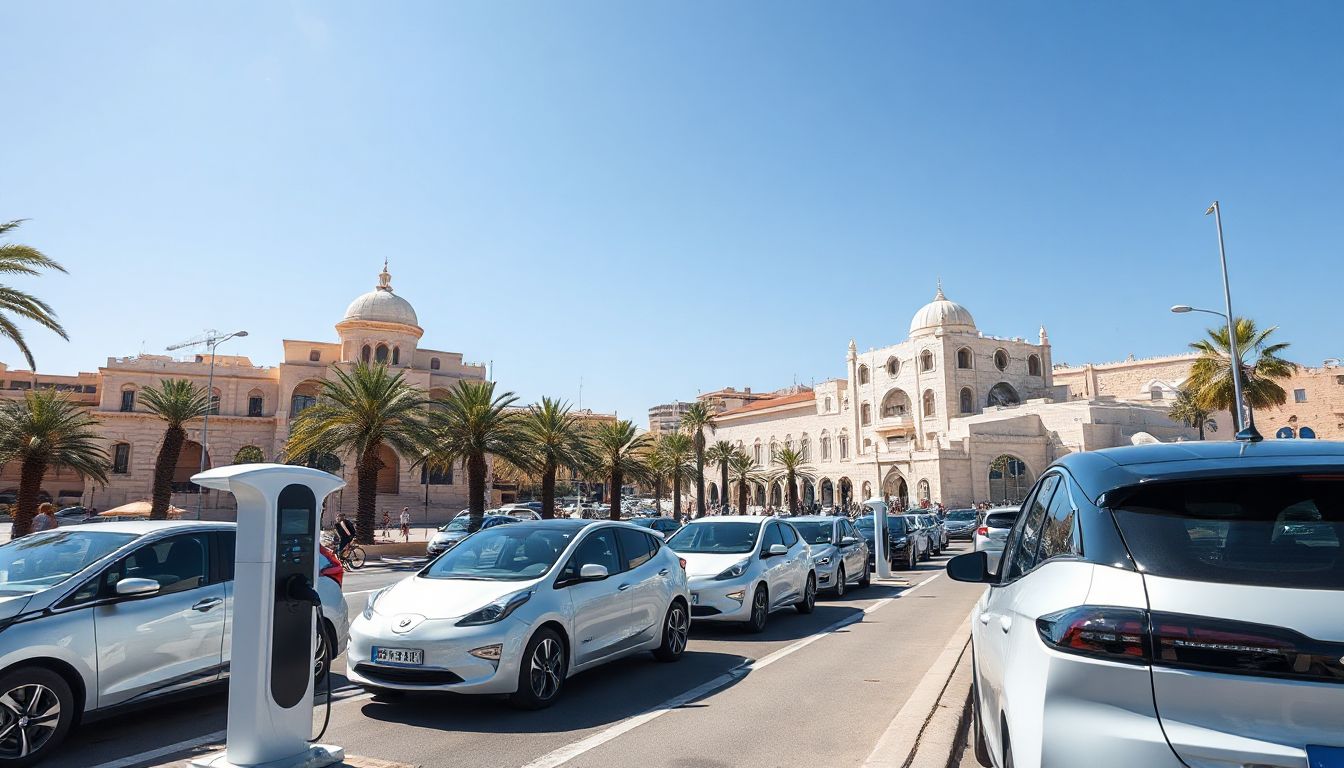Introduction
Across the globe, the push for electric vehicles (EVs) is clear. Countries are working to reduce pollution and cut reliance on oil. Israel isn’t left behind. This small country is making big moves in electric car adoption. As a tech hub, Israel has the tools and the talent to lead in EV innovation. Recently, the government has stepped up efforts to make EVs more accessible through new policies and incentives.
The Current State of Electric Vehicles in Israel
Market Penetration and Growth Statistics
Over the last few years, EV sales in Israel have grown rapidly. In 2021, electric cars made up around 4% of total vehicle sales. That number has doubled in just two years, showing strong momentum. Experts forecast that EVs could account for over 20% of all vehicle sales by 2030. This trend suggests a major shift away from traditional gas-powered cars.
Leading Brands and Models Available
Israeli roads now host a variety of EVs from top brands. Tesla has become very popular, especially with the Model 3 and Model Y. Nissan Leaf and Hyundai Kona Electric are also common choices. Consumers enjoy a range of options, from affordable models to luxury EVs. Charging stations now support most major brands, making EV drivers’ lives easier.
Government Policies and Incentives
Israel’s government offers several perks to boost EV use. First, there’s a significant tax reduction for those who buy electric cars. Many buyers also receive subsidies, lowering the upfront cost. Laws are being written to limit emissions, making it easier for EVs to become the norm. The government’s future plans include building more charging stations and offering additional incentives to speed up adoption.
Infrastructure Development and Charging Networks
Expansion of Charging Stations
Israel is rapidly increasing its charging infrastructure. Today, there are more than 1,500 charging points across the country. The goal is to double that number over the next five years. Major cities like Tel Aviv and Jerusalem already have dense networks. Rural areas are catching up thanks to government programs and private investments.
Types of Charging Options
Electric car owners can choose from different charging types:
- Fast chargers: Can fill up a car in about 30 minutes—great for quick stops.
- Superchargers: Provide rapid power boosts, ideal for long-distance travel.
- Standard chargers: Slower but widely available, usually take a few hours.
Compatibility between different chargers is improving, making things more straightforward for drivers.
Challenges in Infrastructure Growth
Building a solid charging network faces hurdles. Some areas have tricky terrain or sparse population, making infrastructure costly. Funding sometimes slows down progress. Despite these issues, expansion projects are ongoing. Improved infrastructure encourages more drivers to switch and eases concerns about running out of charge.
Economic and Environmental Impact of EV Adoption
Cost of Ownership and Incentives
Owning an EV can save money in the long run. Electric cars typically cost less to operate than gas-powered vehicles. Fuel savings add up since electricity is cheaper than gasoline. Maintenance costs are also lower because EVs have fewer moving parts. Combined with government incentives, many owners find EVs a smart financial choice.
Environmental Benefits
Switching to EVs means cleaner air and less pollution. Israeli cities often face air quality problems, especially during summer. EVs help clear smog and cut greenhouse gases. This move aligns with Israel’s goals in fighting climate change and meeting international commitments.
Local Industry and Job Creation
The EV trend creates new jobs domestically. Startups are developing battery tech and charging solutions. Bigger companies may set up assembly lines or research centers locally. This shift could also mean more maintenance jobs for EV owners in the future, boosting the economy.
Consumer Trends, Challenges, and Adoption Barriers
Demographics and Adoption Drivers
Early adopters tend to be tech-savvy city dwellers, often younger professionals. Most are motivated by environmental concerns, cost savings, or a love for new tech. Price and driving range are important factors for many consumers. As these improve, more people will consider going electric.
Challenges Facing Consumers
Range anxiety remains a concern. Some worry they’ll run out of charge far from a station. The upfront price is still higher than traditional cars, though incentives help. There’s also a learning curve with new tech, but many drivers find EVs simple to operate once they try them.
Expert Recommendations to Accelerate Adoption
- Launch awareness campaigns to show real-world benefits of EVs.
- Promote electric fleet conversions (e.g., taxis, delivery vehicles).
- Support local manufacturing to lower costs and increase supply.
- Invest in user-friendly charging infrastructure to reduce range anxiety.
Future Outlook and Policy Recommendations
The future for EVs in Israel looks promising. By 2030, experts see EVs making up a significant chunk of the market. Technology innovations like better batteries and wireless charging could make EVs even more practical. Policymakers should focus on expanding infrastructure, offering better incentives, and promoting innovation to overcome current barriers. Israel could become a regional leader in this field, showing how small countries can play big roles in sustainability.
Conclusion
Israel is on its way to becoming a key player in the EV revolution. Rapid growth in sales, expanding infrastructure, and environmental gains paint a bright picture. Still, challenges like high costs and infrastructure gaps remain. With strong policies, better charging networks, and help from consumers, Israel can accelerate this shift. As a tech innovator, the country has the potential to shape the future of electric car use in the Middle East. Stakeholders, from government to drivers, all have a role in making these advancements a reality. The road ahead is electric—and the time to act is now.




